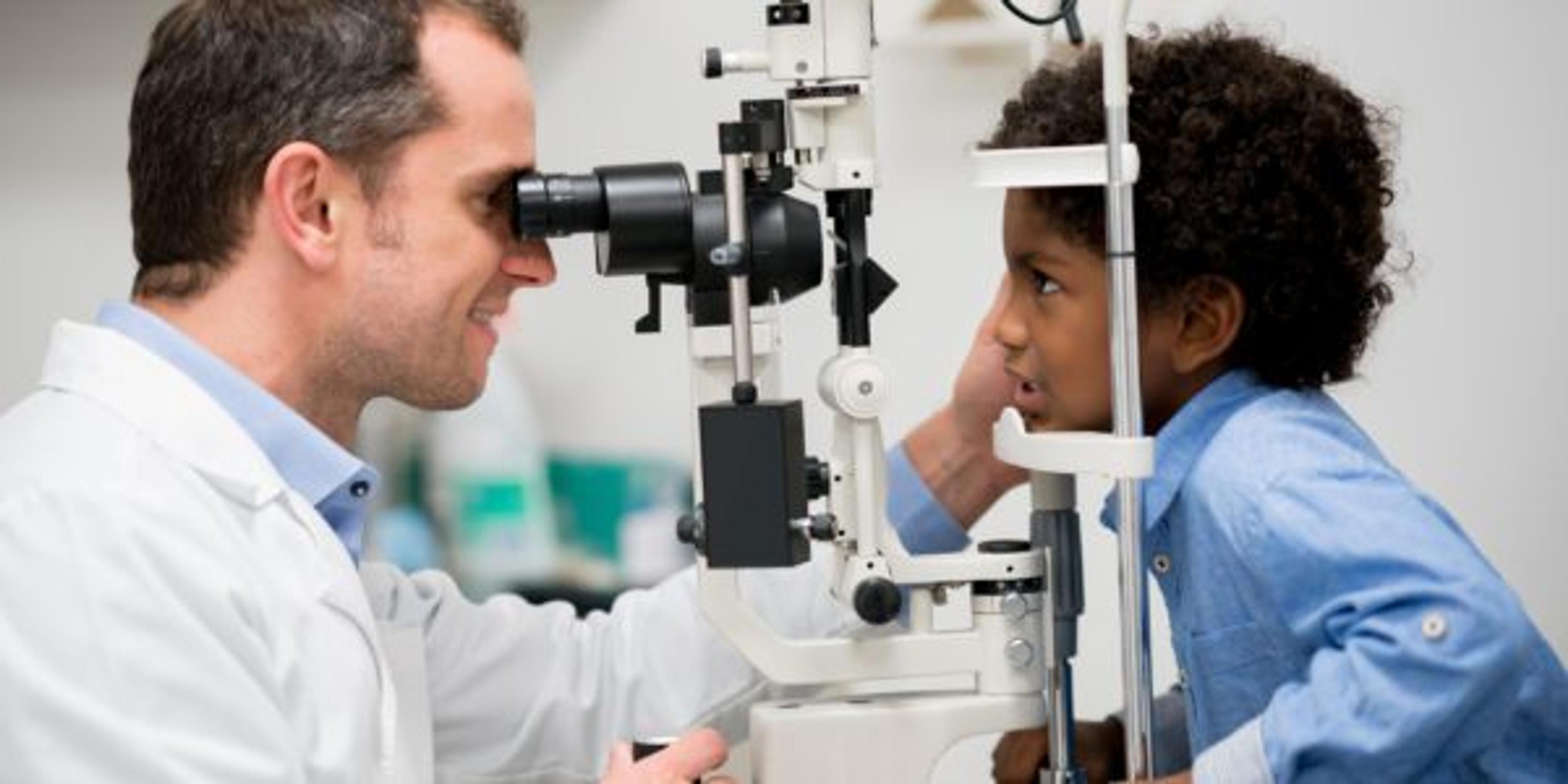What Age and How Often Should Kids Get an Eye Exam?
| 2 min read

Can you read the letters on the bottom row? For more than 216,000 Michigan residents, a visual disability is keeping them from seeing even the top few rows, let alone the bottom!
Visiting the eye doctor may seem intimidating, especially to kids, but it could make all the difference when testing for visual development and abnormalities. So, at what age should your child get a full eye exam?
Having good vision will impact your child’s physical development, schoolwork and overall well-being. The American Optometric Association recommends eye screenings or exams at the following development stages:
- Six to 12 months: Even if no vision issues are evident, an infant could be taken to see an optometrist to be tested for unequal amounts of nearsightedness, farsightedness or astigmatism; eye movement; and eye health problems.
- One to two years: Though parents may have their children receive vision screenings or a check at the pediatricians, these screenings miss as many as 60% of children with vision issues.
- Three years: This is a critical time of vision development. The eyes have been wiring with the brain and continue until about age six. Any vision imbalance or weakness that have not yet been detected and treated can lead to long-term vision issues and can become uncorrectable in years to come.
- Five years: Another full exam is not necessary until your child turns five, unless your optometrist advises otherwise. Your optometrist will compare test results to the previous examination to monitor how well your child’s vision is developing as they prepare for the school years.
Related:
Photo credit: Getty Images





